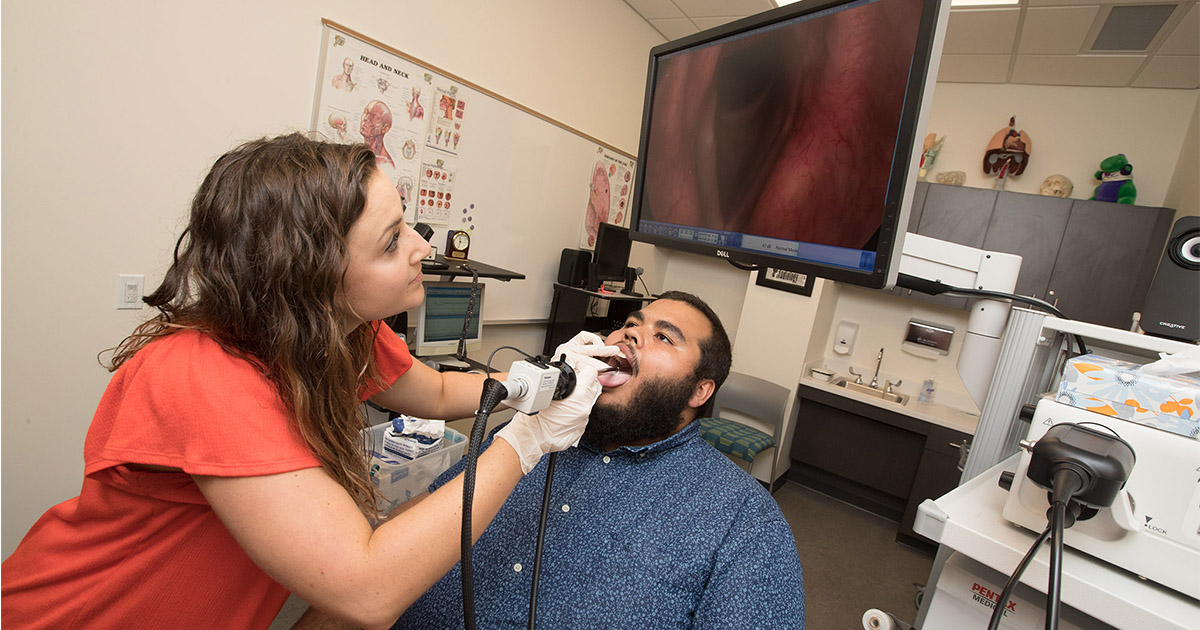When Should You See a Speech Pathologist for Language Disorders?
When Should You See a Speech Pathologist for Language Disorders?
Blog Article
Just How a Speech Pathologist Can Assist Improve Interaction Skills
Efficient interaction is a foundation of individual and professional success, yet many people deal with challenges that hinder their ability to share themselves plainly. A speech pathologist is equipped to attend to these obstacles with targeted analysis and treatment strategies tailored to each person's requirements.
Understanding Interaction Disorders
Recognizing communication disorders is necessary for recognizing exactly how they influence individuals' capability to express themselves and engage with others. Communication conditions include a variety of problems that affect speech, language, and social communication, typically hindering effective communication. These conditions can emerge from numerous factors, including neurological problems, developing delays, physical impairments, or psychological concerns.
Speech disorders might show up as problems in expression, fluency, or voice manufacturing, affecting exactly how words are obvious or spoken. Language disorders, on the other hand, include difficulties in understanding or using language, which can hinder both non-verbal and spoken communication. Social interaction conditions are characterized by troubles in the practical elements of interaction, such as taking kip down conversation or understanding social signs.
The effects of communication conditions are extensive, influencing not just the individual's capacity to share emotions and ideas yet also their social connections, academic chances, and total high quality of life. Understanding of these disorders can cultivate compassion and support, encouraging efficient strategies for interaction and engagement. Recognizing the intricacies of interaction problems is a critical action in the direction of advertising inclusivity and resolving the requirements of those influenced.
Duty of a Speech Pathologist
Speech pathologists regularly play a vital role in identifying and treating interaction disorders, employing a range of evidence-based strategies customized per person's needs. These experts collaborate with individuals throughout the life expectancy, from children with speech delays to adults recouping from strokes or terrible mind injuries. Their competence encompasses a range of communication issues, consisting of expression, voice, fluency, and language conditions.
In restorative settings, speech pathologists use structured treatments developed to enhance communication skills. They may carry out techniques such as speech workouts, language games, and social communication training to assist in enhancements in receptive and meaningful language capabilities. Speech Pathologist. Furthermore, they inform customers and their households about reliable communication strategies and adaptive methods to browse day-to-day interactions
Beyond direct therapy, speech pathologists work together with other health care teachers, caretakers, and experts to make sure a detailed method to therapy. They support for customers by offering sources and support, making it possible for individuals to accomplish their communication objectives and improve their overall top quality of life. As professionals in the area, speech pathologists are important in fostering efficient interaction, advertising freedom, and enhancing social participation for those with communication difficulties.
Assessment and Diagnosis Process
The evaluation and diagnosis procedure carried out by speech pathologists commonly includes an extensive assessment to recognize interaction conditions precisely. This process begins with an in-depth case background, where the medical professional collects significant information about the individual's clinical, academic, and developing background. Comprehending the context of the individual's communication problems is important for an exact diagnosis.
Adhering to the case history, speech pathologists make use of standard examinations and informal assessments to examine various aspects of communication, including speech noise production, language understanding, meaningful language, and social interaction abilities. These assessments are customized to the person's age and details issues, supplying valuable data for analysis.
Monitoring is additionally a crucial part of the assessment procedure, as it enables the medical professional to see direct how the specific connects in all-natural setups. Furthermore, meetings with member of the family and instructors can offer insight into the person's communication challenges across various settings.
As soon as the examination is complete, the speech pathologist manufactures the findings to establish a diagnosis and suggest ideal interventions. This comprehensive analysis procedure click to find out more makes certain that individuals receive targeted assistance tailored to their distinct interaction requirements, laying the structure for reliable healing strategies.
Healing Methods and Approaches
Numerous therapeutic strategies and techniques are employed by speech pathologists to deal with a selection of interaction problems properly. One extensively made use of approach is articulation therapy, which concentrates on correcting speech appears with repetition and visual cues. This method is particularly useful for individuals with speech audio disorders.
Another efficient approach is language intervention, which enhances both expressive and responsive language abilities. This might entail interactive activities that advertise vocabulary development, sentence structure understanding, and conversational skills. Additionally, speech pathologists usually utilize social abilities training to enhance pragmatic language capacities, enabling people to browse social communications extra efficiently.
Fluency shaping and stuttering adjustment techniques are especially developed to help those experiencing fluency conditions. These strategies help clients create smoother speech patterns and take care of the physical and psychological elements of stuttering.
In addition, augmentative and page different communication (AAC) systems are employed for people with extreme interaction disabilities. These systems, which can include motions, signs, or electronic tools, give important assistance for reliable communication.
Advantages of Speech Therapy

In addition, speech treatment can assist in developing vital listening and comprehension abilities, cultivating much better communication in discussions. Individuals with cognitive-communication conditions can additionally profit, as therapy concentrates on enhancing memory and analytical abilities, crucial for reliable interaction.
An additional vital facet is the psychological assistance provided throughout treatment sessions. Speech pathologists develop a secure setting, motivating patients to get over anxiousness and stress relevant to their communication concerns. This support can cause boosted self-esteem and overall mental health.
In addition, very early treatment via speech treatment can stop additional issues, making certain that people reach their complete communicative capacity. Overall, the benefits of speech treatment expand past simple speech enhancement, favorably affecting numerous dimensions of life for those impacted by communication problems.
Verdict
In recap, speech pathologists play a crucial role in resolving interaction problems with evaluation, diagnosis, and customized healing interventions. By utilizing evidence-based strategies, these professionals boost individuals' speech and language abilities, fostering boosted quality, fluency, and social communication skills. The advantages of very early treatment highlight the importance of seeking help from speech pathologists, as their proficiency can dramatically enhance communicative possibility, ultimately bring about higher success in both specialist and personal spheres.

Speech pathologists often play an essential duty in treating and detecting communication conditions, employing a variety of evidence-based techniques tailored to each individual's needs. As experts in the area, speech pathologists are necessary in helpful site cultivating effective interaction, promoting freedom, and enhancing social involvement for those with communication challenges.

Report this page